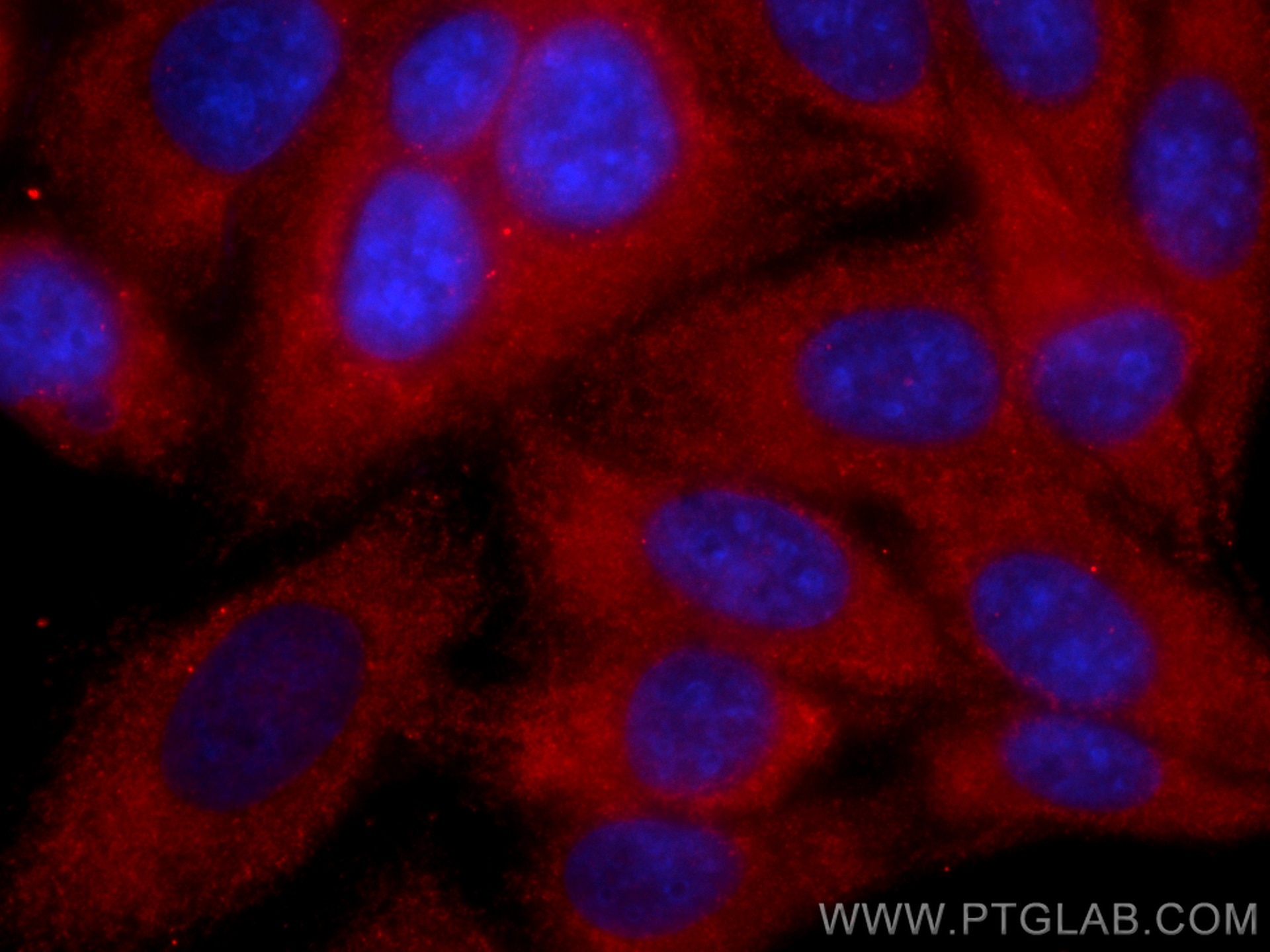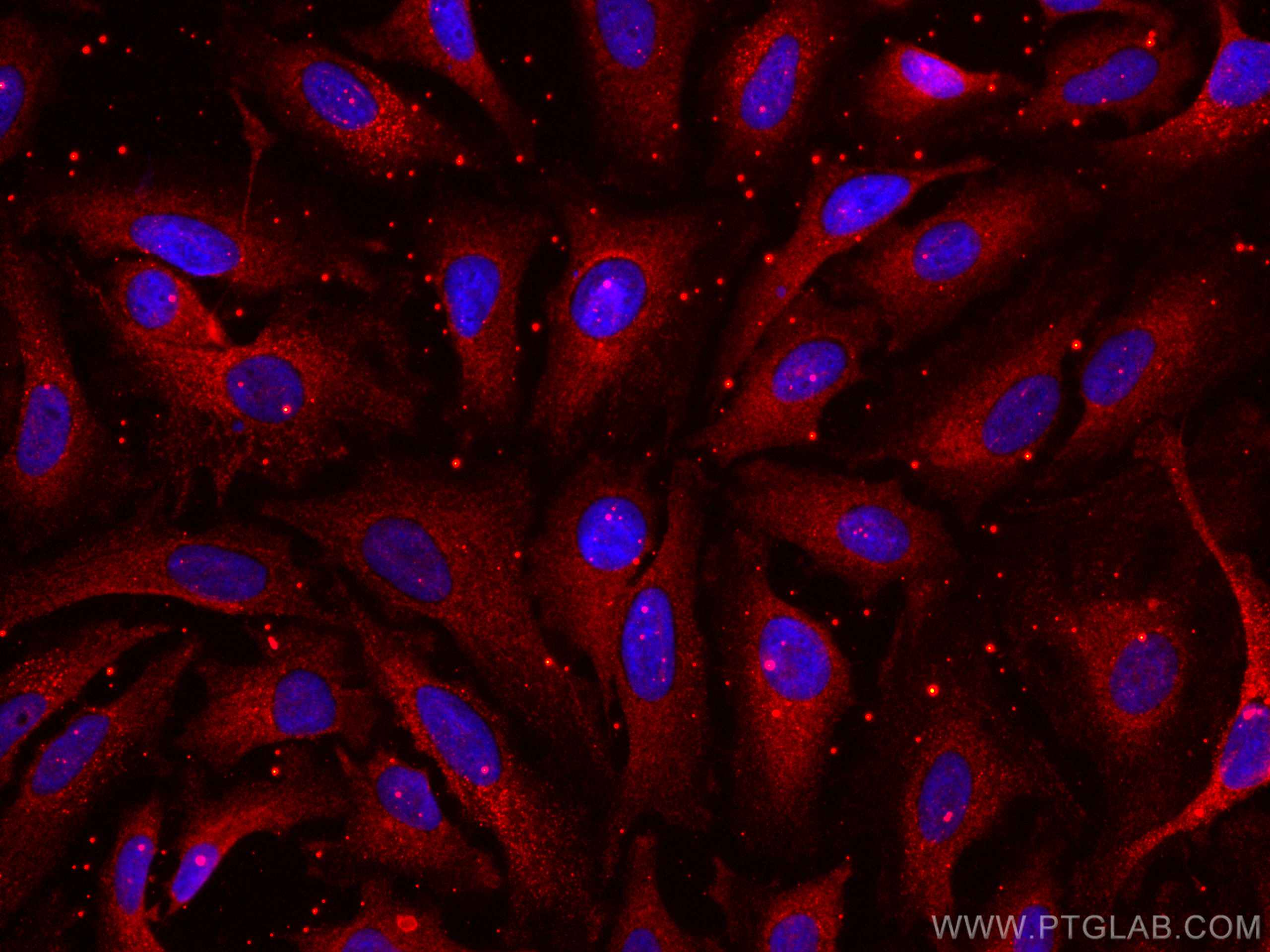Anticorps Monoclonal anti-APOD
APOD Monoclonal Antibody for IF/ICC
Hôte / Isotype
Mouse / IgG1
Réactivité testée
Humain
Applications
IF/ICC
Conjugaison
CoraLite®594 Fluorescent Dye
CloneNo.
1C6D10
N° de cat : CL594-66215
Synonymes
Galerie de données de validation
Applications testées
| Résultats positifs en IF/ICC | cellules HeLa, cellules HepG2 |
Dilution recommandée
| Application | Dilution |
|---|---|
| Immunofluorescence (IF)/ICC | IF/ICC : 1:50-1:500 |
| It is recommended that this reagent should be titrated in each testing system to obtain optimal results. | |
| Sample-dependent, check data in validation data gallery | |
Informations sur le produit
CL594-66215 cible APOD dans les applications de IF/ICC et montre une réactivité avec des échantillons Humain
| Réactivité | Humain |
| Hôte / Isotype | Mouse / IgG1 |
| Clonalité | Monoclonal |
| Type | Anticorps |
| Immunogène | APOD Protéine recombinante Ag21422 |
| Nom complet | apolipoprotein D |
| Masse moléculaire calculée | 33 kDa |
| Poids moléculaire observé | 30-33 kDa |
| Numéro d’acquisition GenBank | BC007402 |
| Symbole du gène | APOD |
| Identification du gène (NCBI) | 347 |
| Conjugaison | CoraLite®594 Fluorescent Dye |
| Excitation/Emission maxima wavelengths | 588 nm / 604 nm |
| Forme | Liquide |
| Méthode de purification | Purification par protéine G |
| Tampon de stockage | PBS with 50% glycerol, 0.05% Proclin300, 0.5% BSA |
| Conditions de stockage | Stocker à -20 °C. Éviter toute exposition à la lumière. Stable pendant un an après l'expédition. L'aliquotage n'est pas nécessaire pour le stockage à -20oC Les 20ul contiennent 0,1% de BSA. |
Informations générales
Apolipoprotein D (ApoD) is a member of the lipocalin superfamily of ligand transporters, and has been implicated in the transport of small hydrophobic molecules. ApoD is also a component of plasma high-density lipoproteins (HDL). Alteration of ApoD expression has been linked to multiple neurological disorders, including Alzheimer's disease.
Protocole
| Product Specific Protocols | |
|---|---|
| IF protocol for CL594 APOD antibody CL594-66215 | Download protocol |
| Standard Protocols | |
|---|---|
| Click here to view our Standard Protocols |



